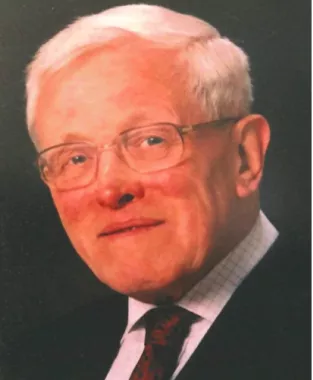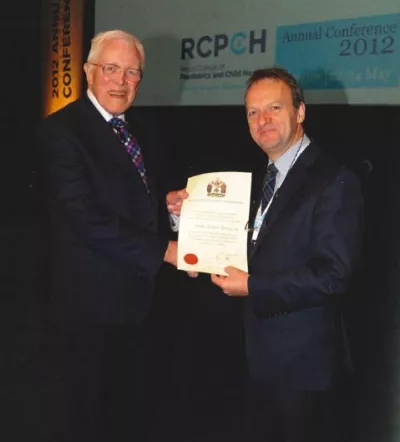
Reye’s syndrome (RS) was first recognised as distinct from other acute encephalopathies in 1963 but little was known about it. In 1984, Jonathan, the only son of Gordon and Gillian Denney, died of RS. Gordon and Gillian made contact with the Harrington family who had also lost a child from RS.
The association between RS and aspirin administration in children suffering from flu or chickenpox had been suspected for several years in the US. By 1985 warning labels were placed on all aspirin products advising against its use in children under 18 years of age. However, such labelling had not yet been introduced in the UK. Gordon Denney and the Harringtons set up the National Reye's Syndrome Foundation (NRSF) to support research on the issue.
RS is rare, so an active surveillance scheme was essential to gather sufficient cases for study. The British Paediatric Surveillance Unit (BPSU), set up as a partnership between the British Paediatric Association (now the Royal College of Paediatrics and Child Health), the Institute of Child Health and the Communicable Disease Surveillance Centres (CDSC) of the (then) Public Health Laboratory Service, took on this project. Dr Susan Hall, who was senior registrar and then consultant at CDSC, was appointed as medical coordinator of the BPSU. Eventually by 1986 sufficient evidence had been gathered to persuade the Committee on Safety of Medicines (CSM) in the
During the study it became clear that a number of Inherited Metabolic Disorders (IMDs) could mimic RS and in fact typical RS has not been reported in the
During David Hall’s presidency at RCPCH (2000-2003), a workshop, supported by NRSF, was set up (2002) bringing together the NRSF, the Research Trust in Metabolic Diseases in Children (RTMDC) and experts in RS, IMDs and public health. This subsequently led to the development by the RCPCH of a National Guideline on Diagnosis and Management of Decreased Consciousness, fully funded by the NRSF.
[Gordon ] was one such modest but quietly determined man devoted to prevention, diagnosis and treatment of RS and IMDs
Gordon Denney remained actively involved in all aspects of RS and related areas including the RS-like IMDs until his death in January 2024. These included collaboration with the RCPCH to develop a microsite on childhood encephalopathies. In 2010, and on several subsequent occasions, Gordon met with David and Susan Hall to discuss a substantial legacy to RCPCH to continue and support research related to RS and related childhood disorders. In 2012 he was awarded an Honorary Fellowship of the College at the Annual Meeting in Glasgow.

Many parents have been motivated by their personal tragedy from loss of a child to campaign for research and change. Gordon, supported by his wife Gillian (who predeceased him by 25 years) was one such modest but quietly determined man devoted to prevention, diagnosis and treatment of RS and IMDs. The RCPCH and parents owe him a great debt of gratitude.
Professor Sir David Hall, RCPCH President 2000-2003 (Emeritus Professor of Community Paediatrics, University of Sheffield; Hon. Professor of Paediatrics, University of Cape Town).
Professor Susan Hall, researcher & lead for BPSU until 1993; (Hon. Professor of Paediatrics, University of Cape Town).
Richard Lynn, BPSU scientific coordinator till 2021 (Hon. Senior Research Fellow, University of London)









